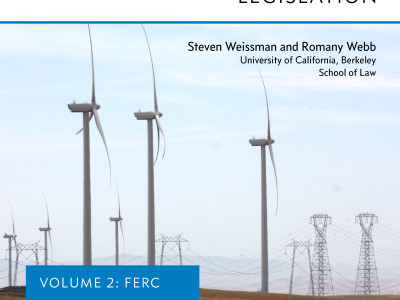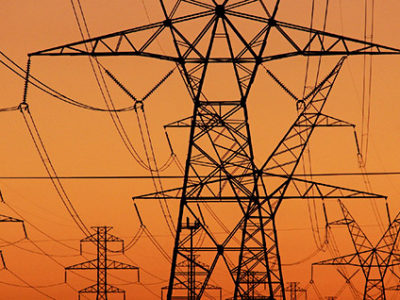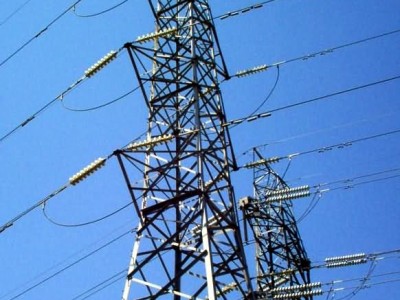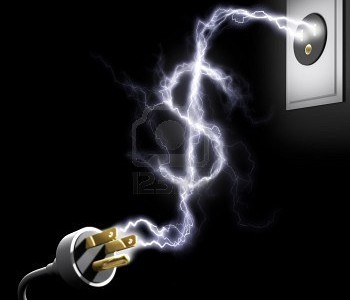FERC
Some of the Things Federal Agencies Can Do to Address Climate Change
Current federal law provides many ways to reduce greenhouse gas emissions, even without a friendly senate
As the likelihood grows that the United States will have a new president who will preside over a divided government, and various policy think tanks line up to offer suggestions for effective action on various important issues, it seems like the right time to shine a light once again on a series of reports issued …
Continue reading “Some of the Things Federal Agencies Can Do to Address Climate Change”
CONTINUE READINGCharging Consumers for Imaginary Power Needs
FERC is distorting energy markets in the name of perfect competition.
Last year, the GOP majority on FERC decided that state clean energy policies were distorting energy markets in the country’s largest grid region. Because they provided incentives for power producers, FERC ruled, those policies should be considered subsidies. It directed grid operators to introduce new policies to counter those subsidies and halt the dreadful onslaught …
Continue reading “Charging Consumers for Imaginary Power Needs”
CONTINUE READINGDefanging FERC’s Challenge to Renewables
The gird operator subject to the order has a plan to reduce its impact.
At the end of June, in a party-line vote, the Federal Energy Regulatory Commission (FERC) issued a sweeping order that seems designed to prop up coal. The order will impact electricity markets in a wide swath of the country. There’s been a lot of concern that the order might seriously impact renewables. But PJM, which operates the …
Continue reading “Defanging FERC’s Challenge to Renewables”
CONTINUE READINGWhat Hath FERC Wrought?
FERC’s GOP majority has taken a swipe against renewable energy. It might work, or it might backfire.
At the end of June, in a vote divided along partisan lines, FERC handed down a sweeping order that will impact electricity markets in a wide swath of the country. — likely at the expense of renewable energy and nuclear power. Unfortunately, like Trump’s power plant bailout, the result may be to delay the closing …
Continue reading “What Hath FERC Wrought?”
CONTINUE READINGThe Puzzle of Capacity Markets
What are capacity markets and why do they matter?
If you live in the Midwest, East of the Mississippi and North of the Mason-Dixon line, or in Arkansas or Louisiana, the companies that generate your electricity are covered by what are called capacity markets. I’ll bet you didn’t know that. That’s actually part of the problem, because there’s very little transparency and hence little …
Continue reading “The Puzzle of Capacity Markets”
CONTINUE READINGThe Paradox of Electricity Deregulation
This is one setting where “deregulation” is a lot more complicated than regulation.
You might think that deregulation means sweeping away regulations, which ought to make the law much simpler. But the opposite is true in the electricity sphere. The regulatory system in states taking the traditional fixed-price approach is actually much easier to understand than the so-called deregulation method. Instead of saying “deregulation” it would be better …
Continue reading “The Paradox of Electricity Deregulation”
CONTINUE READINGThe Federal Government Has *Always* Shaped the Energy System
Obama was criticized for intruding the federal government into energy policy. But that’s nothing new.
To hear some of the debate, you’d think that the Obama Administration breached some longstanding barrier that left energy policy to the states and the market. If there ever was such a barrier, it disappeared over a century ago, with the onset of World War I. Ever since then, the federal government has been actively …
Continue reading “The Federal Government Has *Always* Shaped the Energy System”
CONTINUE READINGGuest Blogger Michael Wara: The Trump Administration Moves to Guarantee Profits for Coal-fired and Nuclear Power Plants
Finally, something anti-regulation conservatives and pro-environment progressives can agree on: dislike of the Sec. Perry’s Resilience and Reliability NOPR
The gloves came off last week when it comes to the Trump Administration’s attempts to subsidize coal in U.S. electricity markets. On Friday, Energy Secretary Rick Perry formally requested that the Federal Energy Regulatory Commission guarantee profits for both new and existing coal fired and nuclear power plants. While Sec. Perry doesn’t have the power …
CONTINUE READINGContinuing Efforts to Put a Price on Carbon
New York regulators and transmission operators consider a carbon adder for wholesale electricity.
The New York Independent System Operator (NYISO) operates the state’s electric grid and conducts wholesale power markets. The New York Department of Public Service regulates the state’s investor-owned electricity providers. Together, they have issued a report concluding that the state, ratepayers, and the environment would benefit from placing a charge on wholesale electric power to …
Continue reading “Continuing Efforts to Put a Price on Carbon”
CONTINUE READINGA Victory for Renewables
The Second Circuit has carved out some safe space for state renewable energy programs.
An important Second Circuit ruling in June should help clarify some of the lingering legal issues about state efforts to expand renewable energy. Judge Calabresi’s opinion in Allco Finance v. Dykes rejected claims that Connecticut’s policies interfered with interstate commerce and invaded an area of exclusive federal regulation. This will be a useful precedent for …
Continue reading “A Victory for Renewables”
CONTINUE READING








